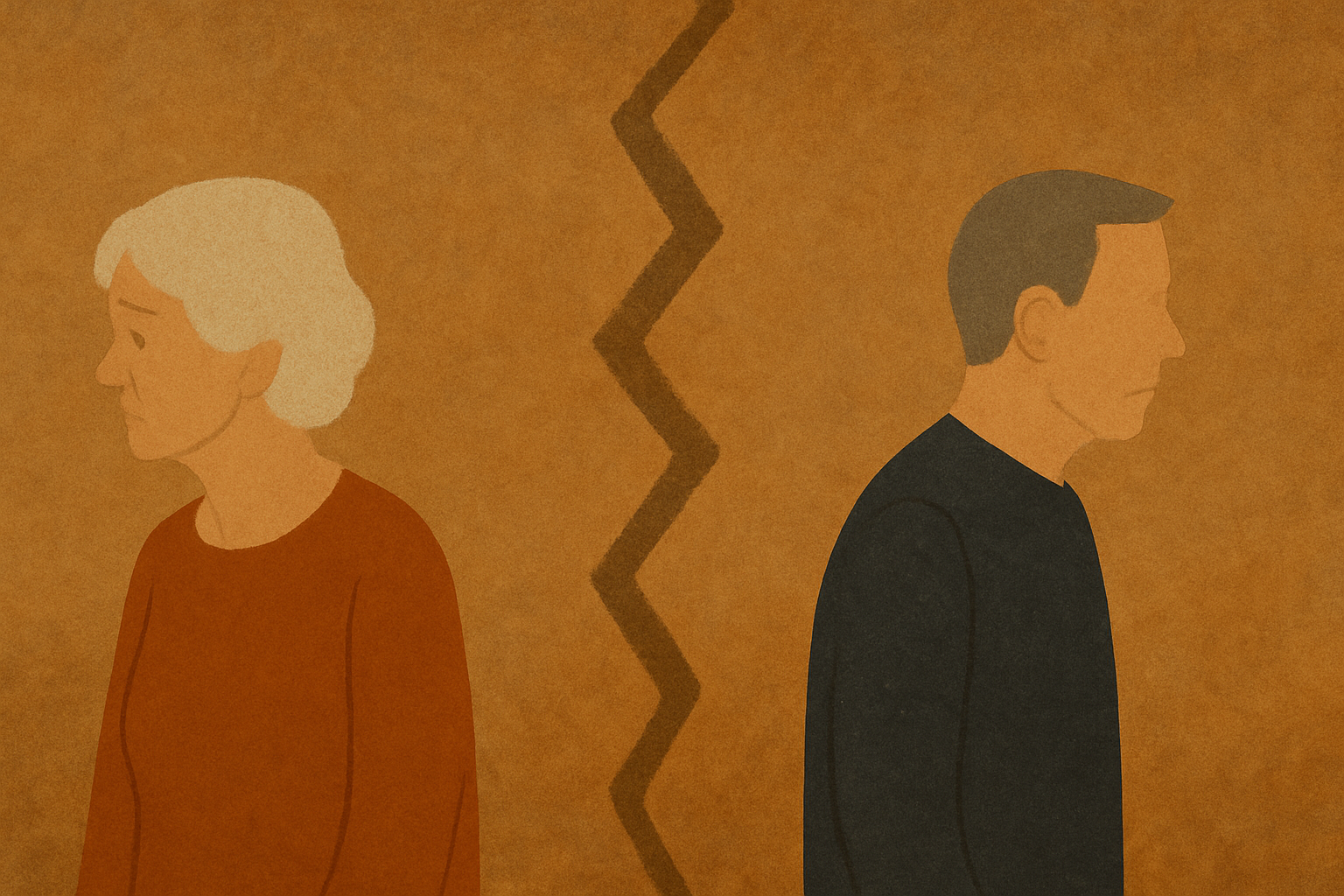As we age, the relationships we’ve nurtured become even more vital. But sometimes, without realizing it, we might be the ones driving a wedge between ourselves and the people we care about most. If you’ve ever felt a growing distance between you and your loved ones or wondered why communication feels strained, it might come down to small habits that unintentionally hurt those bonds.
Here are ten common mistakes Boomers make that can create distance with loved ones—and how to shift these behaviors for meaningful reconnection.
1. Shying Away From Technology
Technology is constantly evolving, and keeping up can feel overwhelming. But when you respond to someone’s excitement about a new app, game, or online hobby with “I don’t understand this stuff” or dismiss it entirely, it can unintentionally create distance.
Instead, take small steps to engage with technology—it doesn’t mean mastering it all, but showing interest matters. Try asking thoughtful questions about what excites them, or even taking a class to get familiar with digital basics. The effort shows you care about connecting with their world.
2. Holding on to “Traditional Values”
Our upbringing deeply shapes us, but the societal norms and traditional roles we once knew don’t always align with modern perspectives. For example, dismissing a non-traditional career path, relationship, or gender role might make loved ones feel disrespected or unsupported.
By being more open to how your loved ones are carving out their identities and lives, you demonstrate acceptance and pride in who they’ve become. The values of empathy and encouragement bridge generational gaps more effectively than clinging to the past.
3. Not Fully Listening
Listening is one of the most essential ways to show love—but too often, conversations turn into one-sided moments where we’re more focused on responding than truly hearing the other person. Young people today are used to fast, engaging communication, and distracted or passive listening may make them feel unheard.
Practice active listening: focus entirely on what they’re saying, don’t interrupt, and reflect on their words. Whether someone’s venting, sharing an accomplishment, or seeking advice, listening deeply will foster trust and strengthen bonds.
4. Needing to Be “Right” All the Time
It’s natural to want our perspective respected. However, constantly pushing to prove you’re “right” in a disagreement can shut down healthy communication. Doing so often makes others feel like their opinions or experiences don’t matter, especially when it comes to generational differences.
Instead of debating for victory, lean into curiosity. Ask others why they feel the way they do and listen genuinely. Prioritize growth and understanding over being “right,” and you’ll foster a more supportive dynamic.
5. Being Overly Involved in Their Choices
From parenting to career choices, it’s tempting to offer guidance because you’ve seen so much of life. Yet offering unsolicited advice or trying to steer their decisions can feel controlling or dismissive of their independence.
Before sharing your thoughts, pause and ask: “Would you like my advice, or do you want me to just listen?” This shows that you respect their autonomy and trust their ability to handle things.
6. Avoiding Difficult Conversations
Sure, conflict can be uncomfortable, but avoiding it only pushes unresolved issues further down the line. Staying silent to “keep the peace” often leads to resentment, misunderstandings, and even emotional distance.
Instead, approach tough conversations with care and honesty. Healthy conflict fosters understanding and builds stronger, more resilient relationships. Start with empathy, share your feelings, and focus on mutual solutions rather than blame.
7. Holding onto Past Versions of Loved Ones
Change is part of life! Yet sometimes, we cling to old dynamics or wish for “the way things used to be,” whether that means yearning for the days when your kids were small or when family traditions were more consistent. This can make your loved ones feel unaccepted for how much they’ve evolved.
Shift your mindset to embrace their growth. Celebrate their new milestones, interests, and identities while being supportive of who they are now, not just who they used to be.
8. Failing to Show Gratitude
A lot of us assume our loved ones already know how much they mean to us—but unspoken gratitude often goes unnoticed. Without regular words or gestures of appreciation, our support might feel invisible, even if we don’t intend it that way.
Make a habit of thanking your loved ones when they spend time with you, help out, or even just listen. A heartfelt “thank you” or an “I’m proud of you” can go a long way in solidifying meaningful emotional ties.
9. Letting Grudges Take Over
Forgiveness can be challenging, especially when hurt feelings run deep. But holding onto old misunderstandings or grievances creates a wall of resentment between you and your loved ones. Longstanding grudges only breed bitterness and widen emotional distances.
Consider whether it’s time to let go of past grievances. Take steps toward forgiveness—not just for your loved one’s sake, but for your own peace. A fresh slate can bring you closer and make room for positive interactions moving forward.
10. Underestimating the Power of Quality Time
Sometimes, life gets in the way, and we forget the importance of spending uninterrupted time together with loved ones. Whether it’s getting too wrapped up in routines or being distracted by daily tasks, disconnected schedules can make others feel devalued.
Be intentional about carving out quality time for meaningful interactions. Plan a family movie night, take a loved one out for coffee, or spend an afternoon asking them about their goals and dreams. Time invested in one another strengthens emotional bonds and shows you care.
Final Reflection: Relationships Grow Where You Water Them
We all make mistakes in relationships—even the strongest, most loving people do. What matters is recognizing these tendencies and making a conscious effort to nurture the connections that mean the most in our lives.
Every change starts with a small step: listening better, letting go of grudges, or even saying “I love you” a little more frequently. By focusing on understanding, empathy, and respect, you can build bridges that deepen your relationships and bring your loved ones closer.
As Carl Rogers wisely said:
“The curious paradox is that when I accept myself just as I am, then I can change.”
Through self-awareness and willingness to grow, relationships can flourish no matter our age.
Which of these simple adjustments resonates with you the most? Let us know how you plan to reconnect with your loved ones in the comments below!



